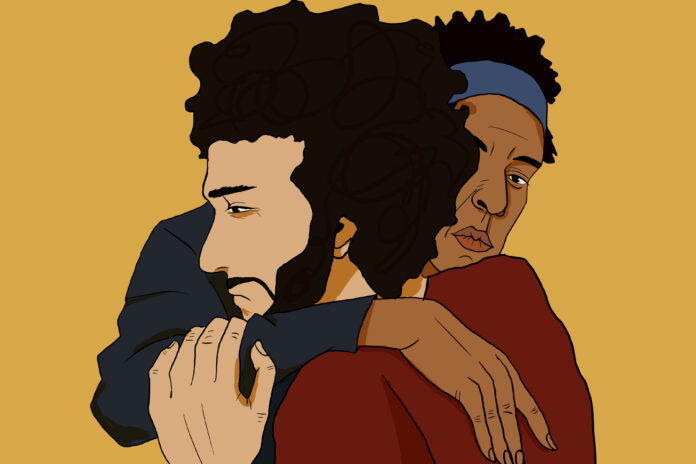Jay-Z is no sell-out
This August, Jay-Z’s entertainment company, Roc Nation, entered into a multi-year deal with the NFL to “enhance the NFL’s live game experiences and to amplify the league’s social justice platforms.” It’s a step in the right direction for a league that has struggled with racial inequality and player freedom for the past century.
The deal makes a lot of sense for the NFL. It’s better to have one of your most public and successful critics working with you rather than against you. But for Jay-Z, the goal is much less clear. Some believe it’s a sellout and strategic money grab, while others believe it’s the next step for NFL activists in forcing the league to recognize a glaring problem in our society.
These concerns are justified –– can a billionaire really be in touch with our society? But to that end, how in touch are the millionaires who play the game or the millionaires on Capitol Hill? Nothing about our society is black and white, so we should not expect activism to be that way as well.
This discussion flared up amid Colin Kaepernick’s recent NFL sponsored workout, which was moved because the league asked Kaepernick to sign a waiver in order to protect itself from future employment lawsuits. The rumor mill circulated the idea that Jay-Z was disappointed with how Kaepernick handled the incident. It was also rumored, however, that Jay-Z was the reason why the NFL was willing to give Kaepernick a workout in the first place. In their skepticism of Jay-Z, NFL activists incorrectly pitted the rapper and Kaepernick against each other — even though their objectives are aligned. As Michael Dyson wrote in the Washington Post, “The choice between Kaep and Jay, between Malcolm and King, is a false one.”
We see it today in the democratic presidential primaries, and also in countless activist movements of the past. The truth is that there is no singular way to make the world a better place. And unity, not division, will make the world a better place.
We have seen these contentions throughout time. Just as Martin Luther King Jr. and Malcolm X were made out to be at odds with one another, society is now doing the same with Kaepernick and Jay-Z. In Jay-Z’s case (as is the case with many others), it is better to work within a broken organization and do what good you can from the inside rather than tear it down and take shots from the outside.
Kaepernick, who began this movement by highlighting racial injustice and police brutality for a broader audience, was a blessing for people like Jay-Z. Jay-Z’s partnership with the NFL is an extension of what Kaepernick started.
Yes, Jay-Z is working with a league that probably colluded to blacklist Kaepernick from the sport, but it’s better than sitting on the sidelines and sending out tweets in protest. If Jay-Z believes that this is the most effective way to take action, who can blame him? This is how activism works. It’s messy.
Jay-Z has been a decades-long advocate for social justice. He’s written op-eds, created The Reform Alliance for criminal justice reform, bailed out Black Lives Matter protesters and produced documentaries of prominent victims of racism like Trayvon Martin. And he intends to do the same with the NFL.
“I’m really into action –– I’m into real work. […] If protesting on the field is the most effective way, then protest on the field,” Jay-Z said in a press conference.
Jay-Z has shifted this battle against racial injustice from a simple protest to full blown corporate level participation and activism. As a result, more people who think like Jay-Z and Kaepernick are making impactful decisions at the highest levels of the NFL. Jay-Z’s involvement with the league allows him to influence how the league gives back to communities and deals with issues of social and racial injustice.
The league’s awful handling of players’ protests in support of social equality turned into a public relations nightmare. This deal with Jay-Z and Roc Nation gives the NFL, its players and its fans the opportunity to make amends for the mistakes of the past — and of the present.
Written by: Calvin Coffee — cscoffee@ucdavis.edu
Disclaimer: The views and opinions expressed by individual columnists belong to the columnists alone and do not necessarily indicate the views and opinions held by The California Aggie




